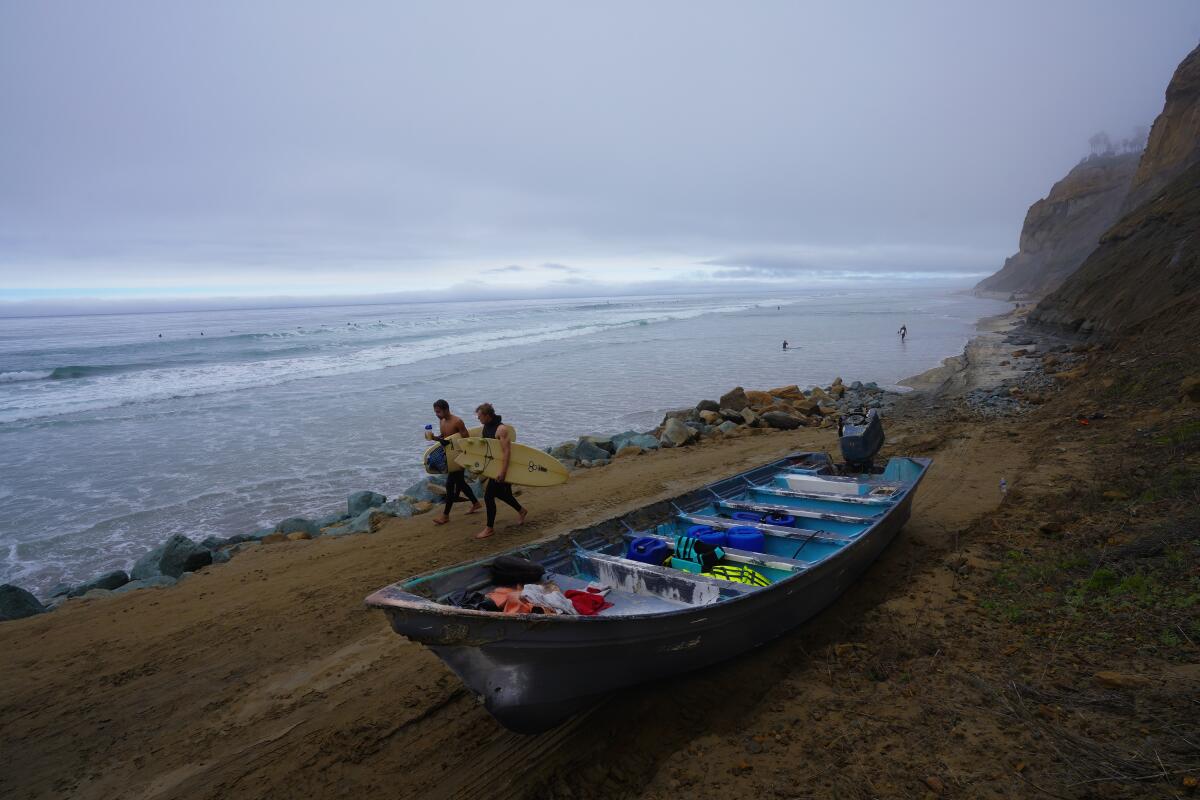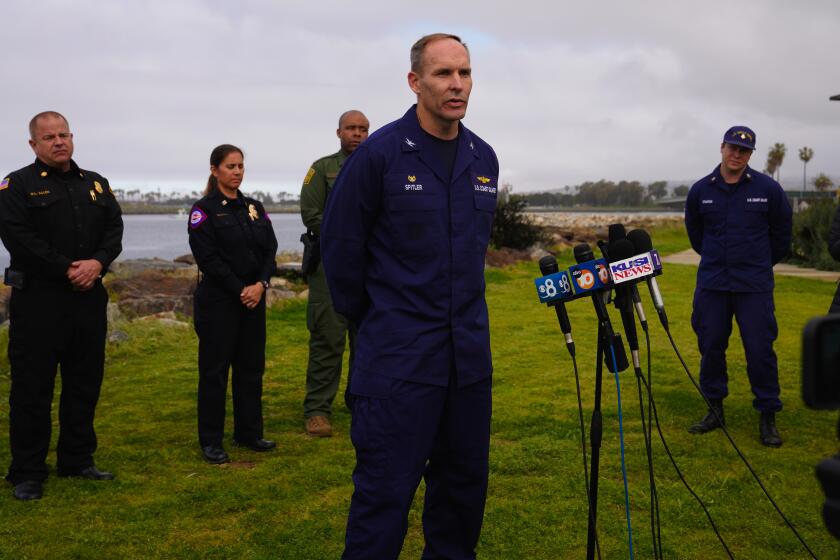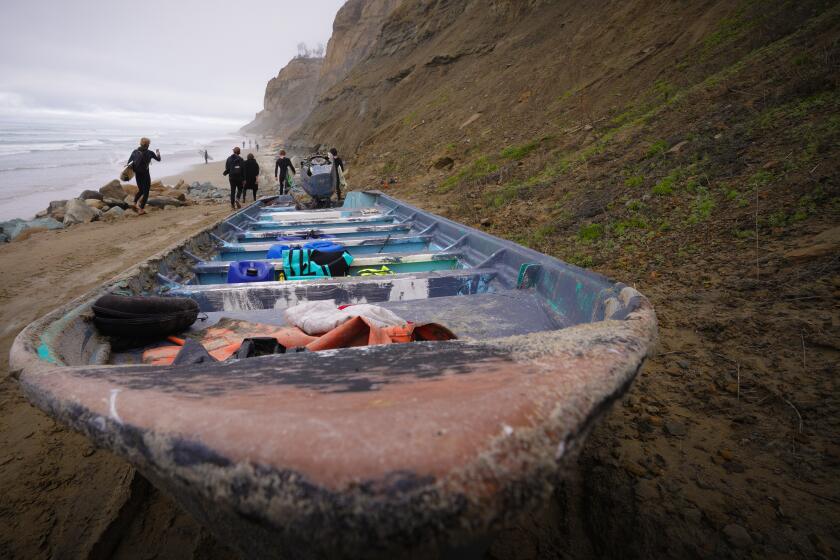Single mother looking for work was among 8 victims in San Diego migrant boat disaster

- Share via
SAN DIEGO — Yecenia Lazcano Soriano, a 22-year-old single mother from central Mexico, wanted to come to the U.S. in hopes of finding work.
It didn’t happen.
She and seven other people died after two boats capsized off Black’s Beach in San Diego late Saturday in what authorities described as a human smuggling attempt. Local authorities called it one of the deadliest maritime events in San Diego history.
The San Diego County medical examiner’s office on Tuesday identified three of the victims: Lazcano; Guillermo Suarez Gonzalez, 23; and Eloy Hernandez Baltazar, 48. All three drowned, the office determined.
Medical examiner’s investigators continued to work Tuesday to identify the other victims, with the help of the consulate general of Mexico in San Diego.
Lazcano was a native of Tehuacán in the Mexican state of Puebla who hoped to find work in the U.S., according to William Murillo, a New York-based legal consultant who assists migrants. Murillo said he has been in touch with Lazcano’s family.
As human smuggling attempts along Southern California’s coast have surged, so have mishaps and deaths. At least eight people died over the weekend.
Few other details about the victims were available Tuesday.
Murillo said Lazcano’s family and the family of a 39-year-old man contacted his legal consulting firm to ask for help in finding their relatives. Both families had received phone calls from someone who notified them that their family members had been on a boat that overturned. The caller then hung up, he said.
When the families called the number back, there was no answer, Murillo said. The families then saw news reports of the disaster in San Diego and were worried.
Murillo said it is common for smugglers to deliver terrible news then “vanish” so they aren’t contacted again, leaving families with little information and a great deal of anguish.
The family of the missing man had not received any official notification about his whereabouts or fate as of Tuesday afternoon, Murillo said.
According to the families he spoke to, several migrants from Santiago Miahuatlán in southeast Puebla were among the passengers on the two boats that capsized, Murillo said.
San Diego lifeguards and other emergency crews discovered the victims in the water and along the sand at Black’s Beach after a Spanish-speaking woman called 911 about 11:30 p.m. Saturday. The woman said she and seven others were on a boat that made it to shore while eight to 15 others were on a second boat that capsized.
Lifeguards found two overturned pangas and no survivors, leading officials to believe some people fled before crews arrived.
A search for additional victims, hampered by fog and other weather conditions, turned up no other bodies, officials said.
Autopsies were underway Monday to ID victims of Saturday’s boat crash. Federal investigators were tightlipped about a criminal probe.
“This is one of the worst maritime smuggling tragedies that I can think of in California, and certainly here in the city of San Diego,” San Diego Fire-Rescue Department Lifeguard Chief James Gartland said during a news conference late Sunday morning.
Mexican Consul General Carlos González Gutierrez said in a series of tweets Tuesday that the office has notified the families of the three people identified so far, who he confirmed were all from the state of Puebla. The consulate has been in contact with the government in the state of Puebla and will help get the bodies back to the families.
A spokesperson from the consulate said Monday that at least seven of the victims were presumed to be citizens of Mexico based on documents they had on them.
More to Read
Sign up for Essential California
The most important California stories and recommendations in your inbox every morning.
You may occasionally receive promotional content from the Los Angeles Times.
















